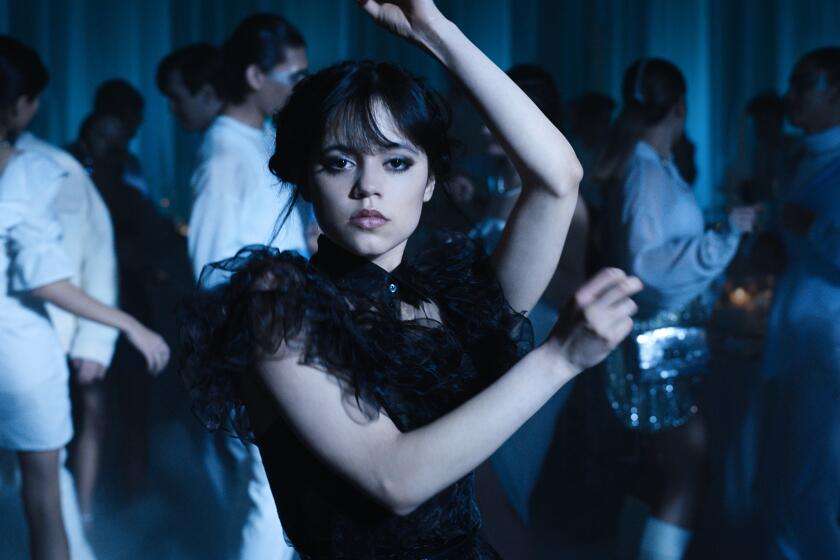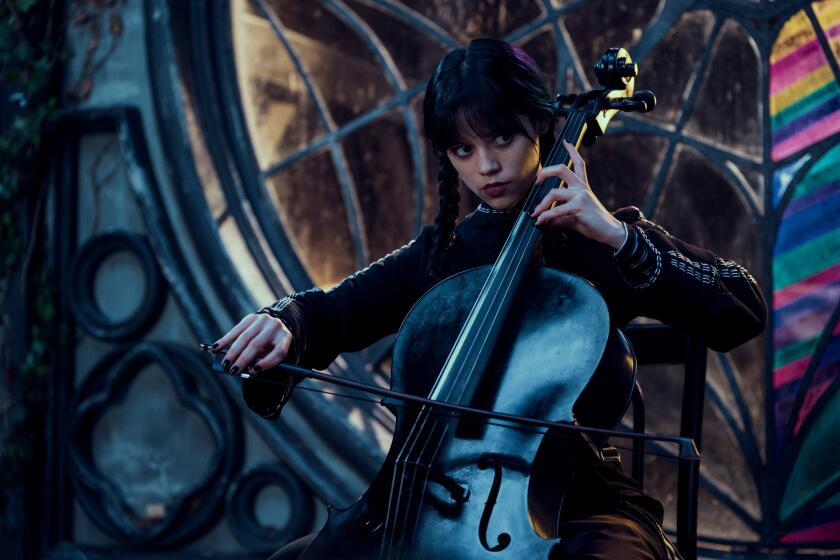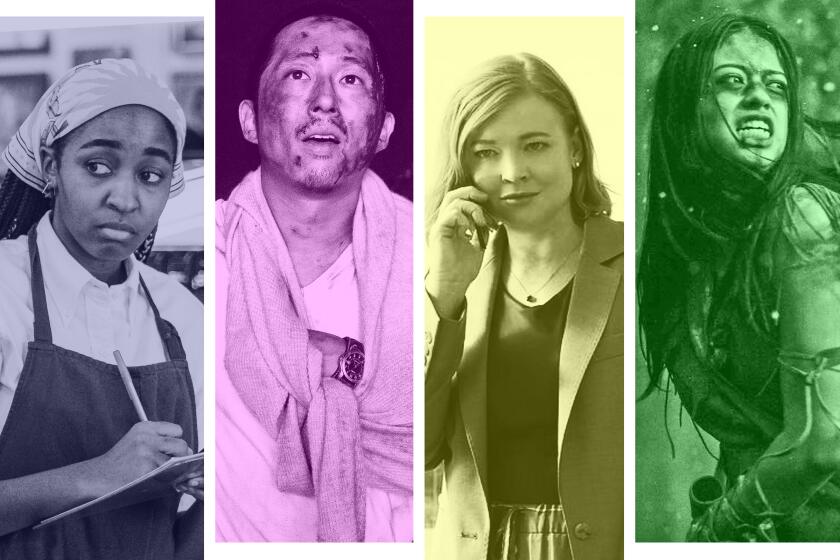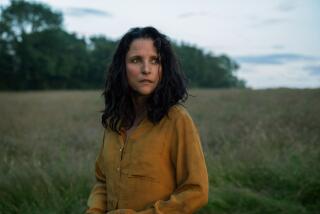How ‘Wednesday’ embraces the old Addams Family cartoons and Tim Burton’s new vision
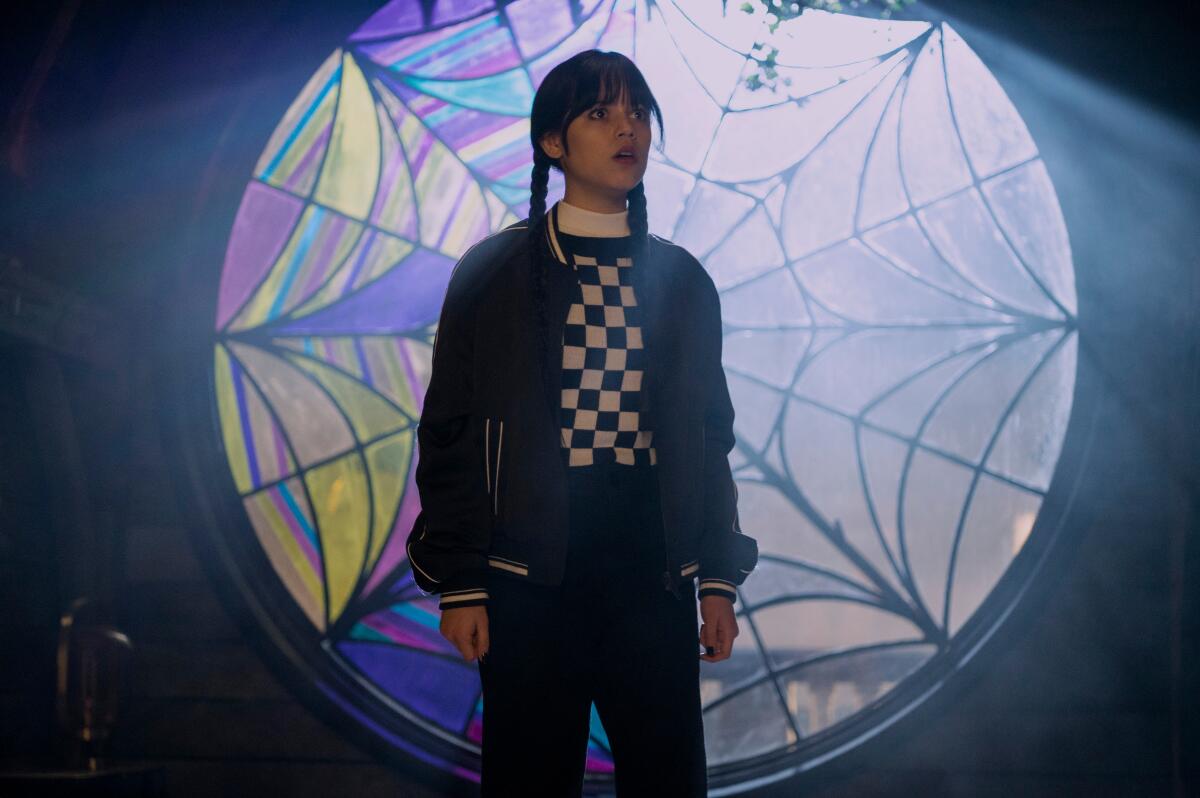
Although the Gothic, mysterious world of “Wednesday” follows in the footsteps of prior on-screen incarnations of the Addams Family, director Tim Burton wanted this version to have its own visual identity. Instead of looking at previous films or TV episodes, production designer Mark Scruton used the original imagery of Charles Addams as his source material.
“That was our starting point,” Scruton says. “And then really we tried to build it from the ground up. It was a new approach and a fresh start. It’s a different story we’re telling anyway, so we looked at Addams’ cartoons. They were quite good because they’re similar in composition to the way Tim works. They’re minimal, they’re fast, they tell a lot with a few lines.”
Ahead of production, which began in the fall of 2021, Scruton worked with Burton on the set design for several months, meeting two or three times a week to share ideas. Addams’ drawings offered a template, but the locations in the series, including Nevermore Academy, aren’t actually from the comics.
From school uniforms to a party dress, costume designer Colleen Atwood turns her gothic style into hot fashion chic.
“That was the clever thing about the script — it wasn’t really placing the story anywhere that preexisted,” Scruton says. “We had a free canvas. We didn’t want to scrap what was recognizable about the Addams Family, so we had this double-pronged approach where we had to create a new environment from scratch but it had to be recognizable. With Nevermore, we worked on the shape and silhouette first to get that aesthetic right.”
In the series, Nevermore is in Jericho, Vt., which is a real place. For “Wednesday,” however, it was built from scratch, far away.
The idea was always to find a real-world location for the school and then augment it. After looking at various locations, Scruton and his team landed on Cantacuzino Castle in Bușteni, Romania. It took a month to build and dress the exterior of the castle, including re-landscaping the grounds and adding in an entry road. The scenes that take place outside of Nevermore were then shot in just three days. Almost all of the other 100 sets were built in and around Buftea Studios near Bucharest.
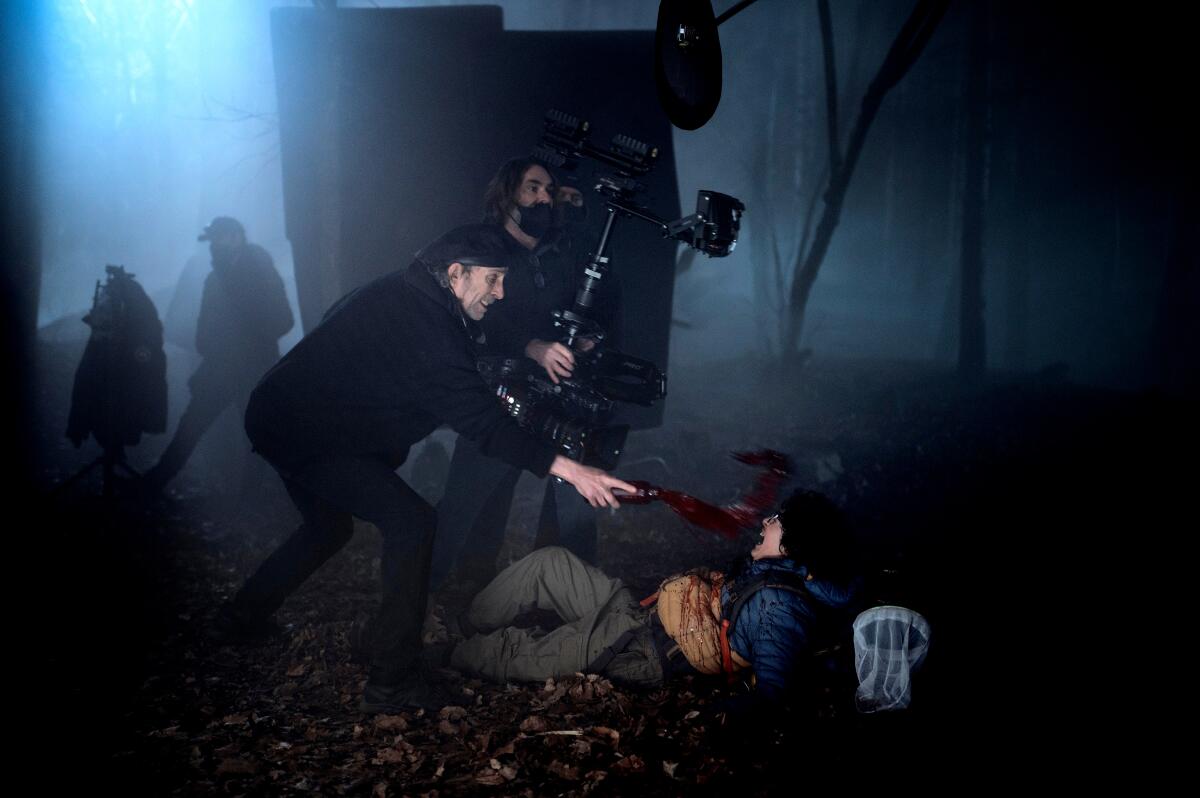
“It was great for us, because nobody else was there, and they had a forest and a lake, so we very rarely needed to leave that complex,” Scruton says. “We could always just create a little corner here or a bit there.”
“We arrived in May and it was a mud field,” recalls cinematographer David Lanzenberg. “We had to decide, ‘Where do we want the church?’ So [Mark] and I talked about where the church would be and its correspondence with the rest of the town. We had to be very specific as to where the main avenue would lead. And then literally, not even four months later, they had built the whole town.”
“We did it in 15 weeks, I think, from start to finish,” Scruton adds. “But it was all composite, because we were going there quite regularly and we didn’t want to use CGI to constantly top it up. What you see in the TV show is what we built. The key thing was we didn’t want any black in it. We wanted it to be very poppy, compared to Nevermore.”
The importance of the contrast between dark and light became evident when Scruton and Burton designed the stained-glass window for the dorm room Wednesday (Jenna Ortega) shares with Enid (Emma Myers). One half of the window — and the room itself — is colorful and bright, whereas the other half is gloomy and dark.
“It became very clear right away that it was going to be this show about opposites and conflicts,” Scruton says. “We worked on that [window] for a while before we went on to anything else. Once we had that nailed, it gave us a good anchor for everything else.”
The sets have a distinct Gothic look, but Scruton also wanted there to be a modern feel to Nevermore. He mixed contemporary elements like vending machines with period furniture from various eras, including Gothic, Brutalist and Rococo. Visually, the design was intended to convey the idea that the school had evolved over time, rather than all being built at once in one particular style.
“We wanted it to feel like it was a real place,” he notes. “Obviously, it’s stylized and designed, and that’s what we wanted, but we also wanted it to feel like it was a real school with real kids in it and real world influences.”
Lanzenberg and Scruton worked together to light the sets, which incorporated as much practical lighting as possible, which is especially noticeable in the dorm room. Because of the tone and scope of the story, much of it was also relatively dark. There were numerous night shoots, including in real and built forests, and Lanzenberg wanted to reflect the macabre elements of the series in a way that was equal parts natural and stylized.
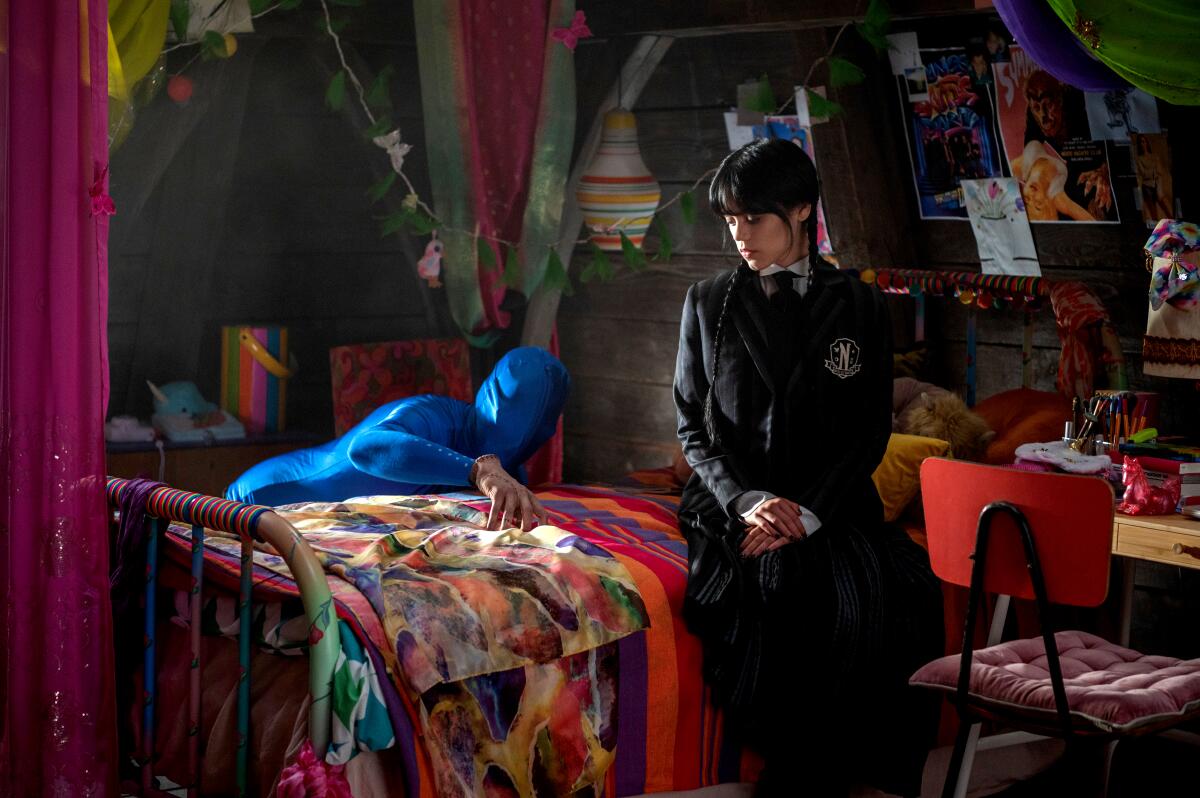
“The whole project had a very fluid process to it,” Lanzenberg adds. “Working with Tim, there was no ‘This is where I want the camera.’ There was always very much of a fluidity to things, which was very refreshing. You had to run through all the different possible scenarios of where you thought the camera should be. Very early on there was an understanding that everything started with the performance of the character with Jenna.”
One of the most fun challenges was figuring out how to shoot Thing, who was played by Victor Dorobantu. Initially, there was some discussion about making the hand CGI. Burton quickly shut that down.
“Tim Burton said, ‘No, no, this is a character. We have to treat Thing like another actor on set,’” Lanzenberg remembers. “We brought in Victor, who was a magician, so he had great dexterity in his hands. He was amazing. But the complication was he’s got a whole body of a 6-foot-1-inch person behind the hand. We were trying to tell the story without feeling that physicality or getting a sense that there’s a body that’s following him.”
With such series as ‘Wednesday,’ ‘Wolf Pack’ and even ‘Cobra Kai,’ new series for teens are taking darker turns with multi-generational storytelling and complex characters.
“Tim likes the reality of things and the tangibility of things,” Scruton adds. “But then it became apparent we were going to have to incorporate a real person. There was a lot of off-the-cuff cutting of holes in things and suddenly having to replicate things. Suddenly, we would have to make three versions of a piece of furniture for different angles.”
Despite its fantasy setting, the world of “Wednesday” feels tangible, which comes down to the focus on real sets and practical effects captured with intentional framing.
“Creating a world that people could relate to and was still fantastical was our ambition, and I think we did it,” Scruton says. “You can see how people react to it. So many people have taken what we’ve done now and run with it, and it’s become such a thing in the world. It’s quite extraordinary to watch. It’s been a strange and wonderful experience.”
Our BuzzMeter panel of veteran TV journalists predicts the winners in 14 categories of the 2023(?) Emmys. You can, too, in our weekly polls.
More to Read
From the Oscars to the Emmys.
Get the Envelope newsletter for exclusive awards season coverage, behind-the-scenes stories from the Envelope podcast and columnist Glenn Whipp’s must-read analysis.
You may occasionally receive promotional content from the Los Angeles Times.
